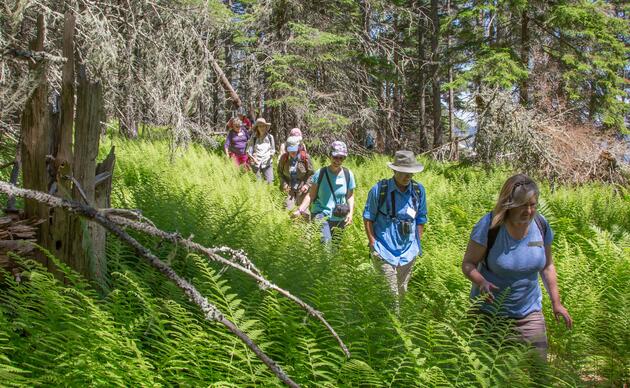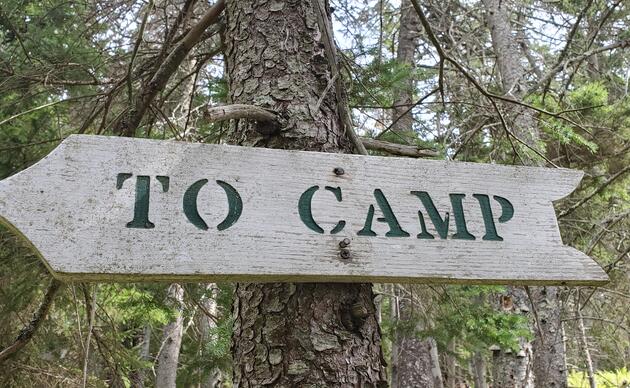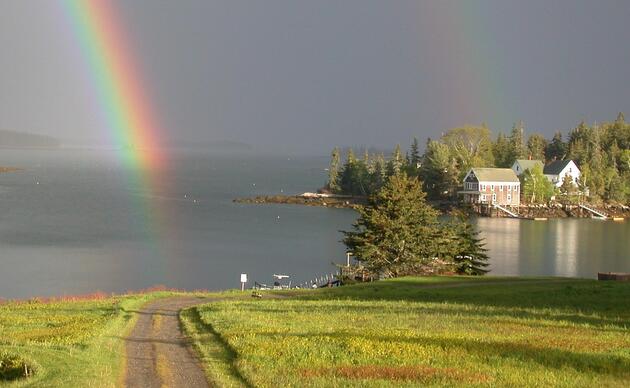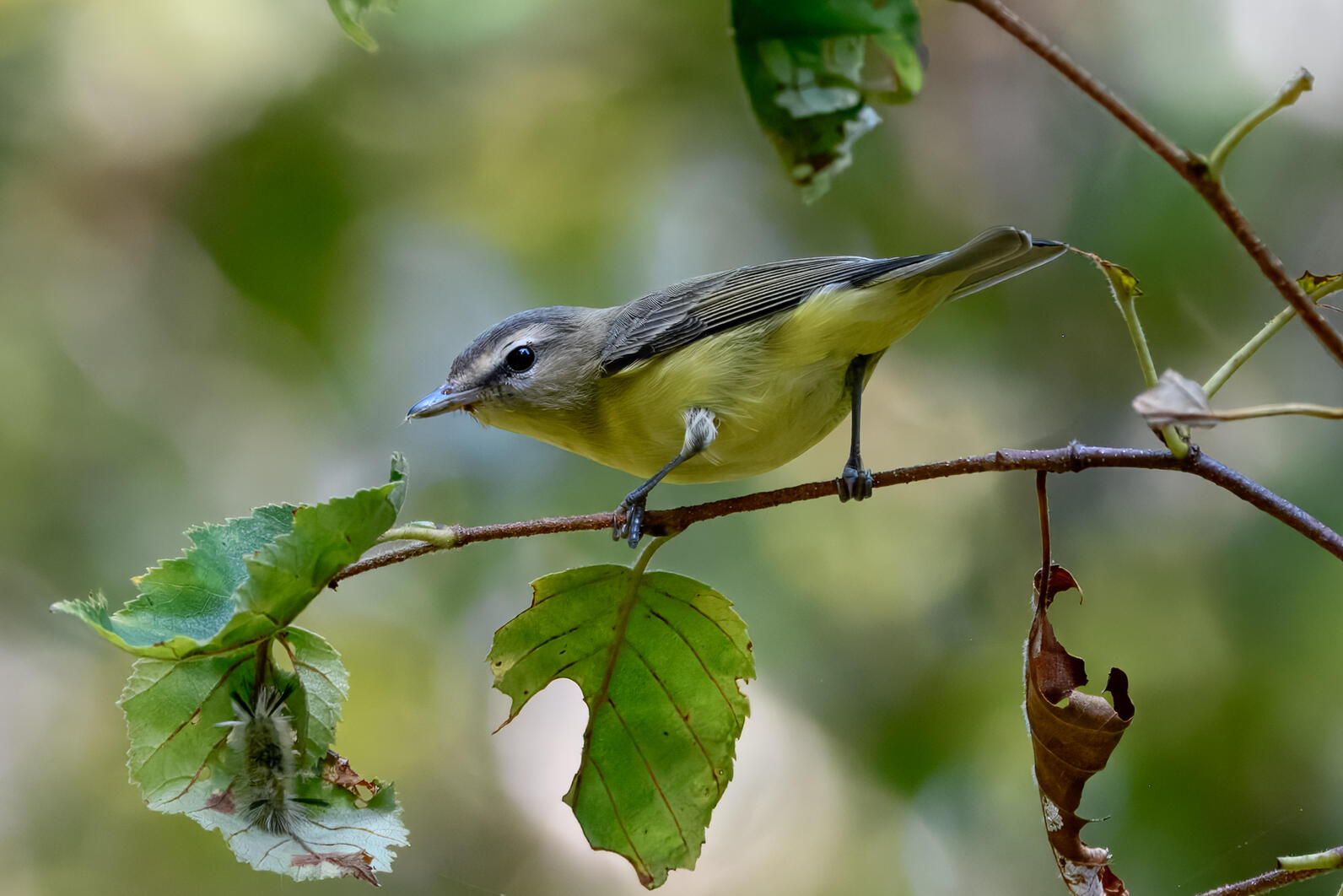
Register Now!
This special, small-group session is devoted to the wonders of fall migration and will include an overnight stay on the iconic and beautiful Monhegan Island. The rest of the week will be spent traveling to the best migrant hotspots around Hog Island based on the weather, tides, and bird migration patterns.
This intensive week of birding will take participants from tidal marshes and beaches to hawk watches, spruce forests, and the outer islands and waters of Muscongus Bay. The highlight will be an overnight trip to Monhegan Island, one of the best "migrant traps" in the Northeast -- a place justly famous for its birding and dramatic rocky coastline, which has inspired artists for more than a century. Learn about how and why birds migrate and the conservation challenges facing them from experts in the field of ornithology.
Pricing: $2,010
Maine residents are eligible for a $150 in-state discount for this session! After you register, contact hogisland@audubon.org to confirm your residency and the discount will be applied to your account.
The base registration fee includes meals, housing, instruction, and all boat trips. This also includes your hotel room, ferry transportation, and most meals on Monhegan (participants will be responsible for purchasing one lunch on the second day of the Monhegan Island trip). This price is based on a standard shared room (with 2 twin beds) and a shared bathroom. A limited number of upgraded accommodations are available for an additional cost. Two options are a single room for solo travelers or a room with a private bath for two people traveling together. There are no single rooms with private bathrooms available. Please see our lodging page for more information.
Participants must arrange their own transportation to and from the Audubon dock in Bremen at the start and end of the session. Please see our transportation page for more information.
There are several scholarship opportunities available to help participants attend Hog Island sessions! Please see our scholarships page for more information about Hog Island Scholarships. You should also check with your local Audubon chapter or bird club for additional opportunities.
Requirements: All participants must be able to walk over uneven terrain for 2 miles. Monhegan Island has unimproved trails with hills and rocky outcroppings that require the ability to walk uphill and on a single-track trail. No prior birding experience necessary! Birders of all levels are welcome.
Director: Scott Weidensaul
Scott Weidensaul is the author of nearly 30 books on natural history, including the Pulitzer Prize finalist "Living on the Wind" and his latest, the New York Times bestseller "A World on the Wing." Weidensaul is a contributing editor for Audubon and writes for a variety of other publications, including Bird Watcher's Digest and Living Bird. He is a Fellow of the American Ornithological Society and an active field researcher, studying saw-whet owl migration for more than 25 years, as well as winter hummingbirds in the East, bird migration in Alaska, and the winter movements of snowy owls through Project SNOWstorm, which he co-founded. He lives in New Hampshire, and is the chair of the Friends of Hog Island board of directors.
Instructors: Seth Benz, Holly Merker, Sara Morris
Seth Benz has served as Assistant to the Curator at Hawk Mountain Sanctuary, director of Hog Island Audubon Camp, and is the current director of Schoodic Institute at Acadia National Park’s Bird Ecology Program. In his current role, Seth coordinates citizen scientists’ efforts to monitor bird migrations, pelagic seabird concentrations, and biodiversity and phenology observations in the Acadia Region. Benz was recently elected to a three-year term on the Maine Bird Records Committee. Seth and wife Sue reside in Belfast, Maine with their Australian Shepherd rescue pooch Beazie.
Holly Merker has been in awe of birds and the wonders of the natural world since childhood. She shares her passion by connecting others to nature in her work as a professional birding guide and nature-based wellness specialist, award-winning author, and public speaker. Combining professional backgrounds in bird identification, art therapy, certification in nature and forest therapy and wellness counseling, and mindfulness practice, she works as a global advocate for Mindful Birding. With dedication to bird conservation, Holly has been the eBird state coordinator/data reviewer for Pennsylvania since 2005 and was a two-term voting member and Chairperson of the Pennsylvania Ornithological Records Committee. She considers herself a migration junkie and lives her life around the seasonal journeys of birds. Holly believes strongly that birding holds a key to wellbeing, co-authoring two books on this subject, and founding the Mindful Birding Network and co-hosting the Mindful Birding Podcast.
Sara Morris is a professor of Biology and the Director of the Environmental Science Program at Canisius College in Buffalo, NY. She earned her MS and PhD in zoology at Cornell University. Her research focus is bird migration, specifically in how birds use sites in-between where they breed and winter to successfully complete their migrations. At Canisius, Morris teaches classes in ornithology, vertebrate zoology, ecology and evolution. She regularly takes her undergraduate research students to ornithological conferences to present their research projects and class students on extended field trips to areas like Fort Myers, FL, and the Galapagos Islands to study wildlife. Morris is a Fellow of the American Ornithologists’ Union (AOU), the Secretary of the AOU, a council member of the Wilson Ornithological Society, and a research associate at the Buffalo Museum of Science.
Assistant Instructor: TBA
NOTE: Audubon reserves the right to alter itineraries, instructors and particular arrangements, or to substitute similar itineraries or arrangements, at no penalty. If Audubon cancels a session, it will issue full refunds of all deposits or payments to the paid participants.
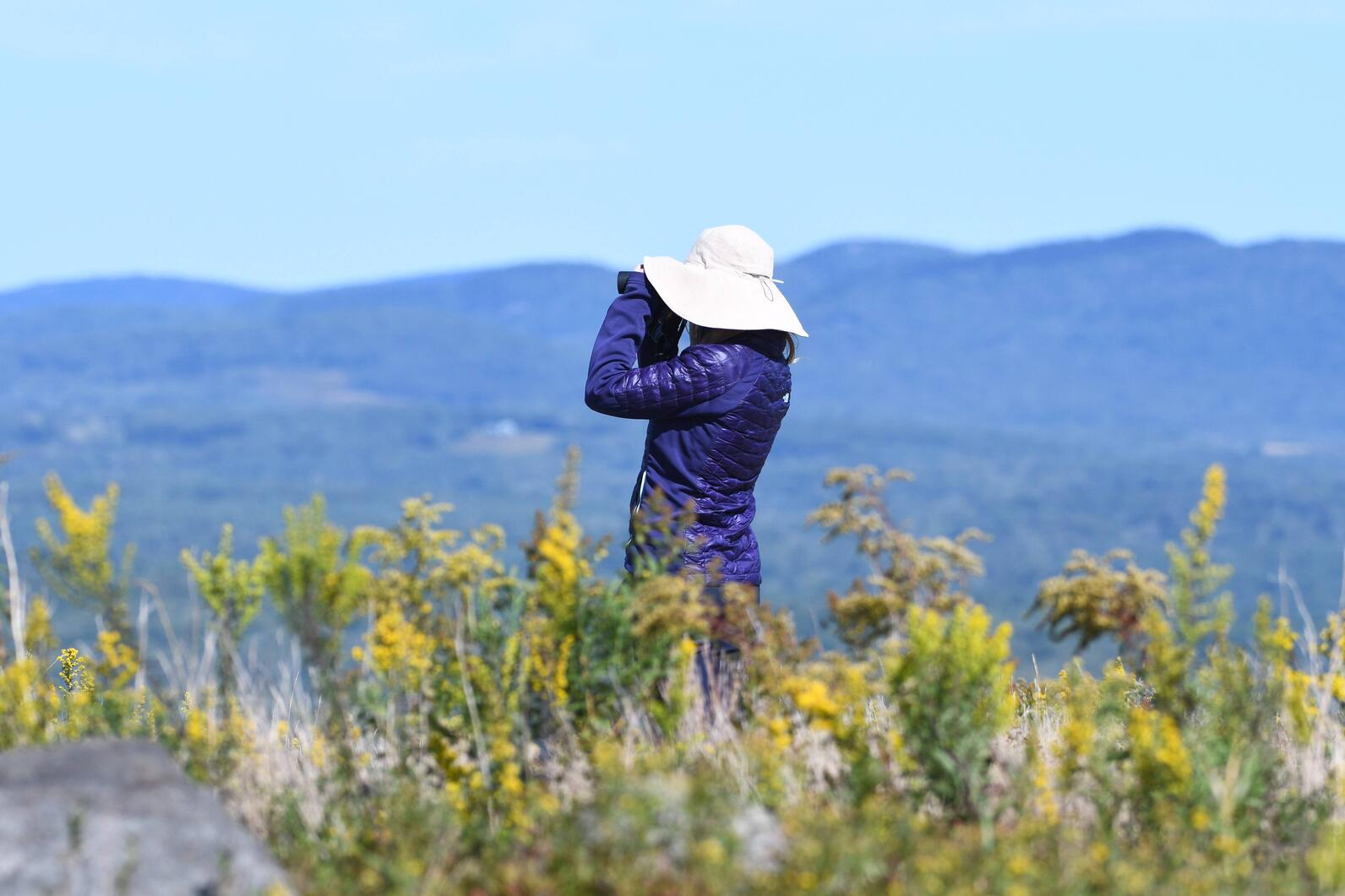
Testimonials:
“Everyone is so professional and friendly. The instructors are the best in their field and we feel so furtunate to learn from them” - 2025 Camper
“Appreciated all he effort by EVERYONE to be sure we had the best experience possible.” - 2025 Camper
“I loved that [they] really emphasized inclusiveness! I loved that they made beginner birders feel welcome” - Denise, 2025 Camper

